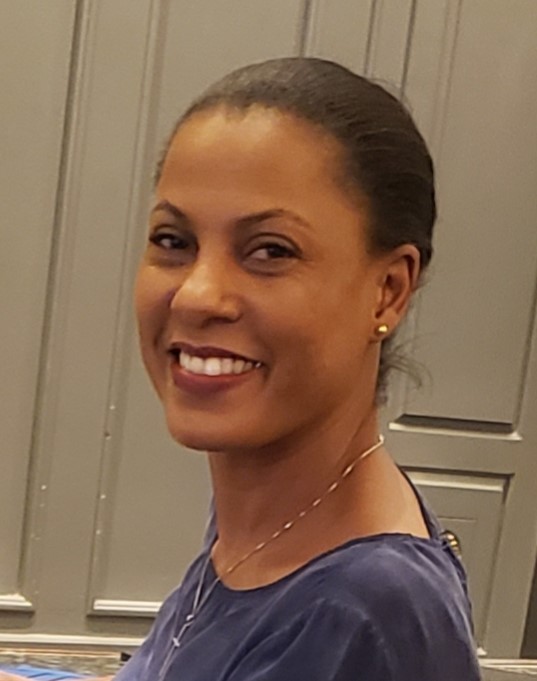Speeches Shim

Spotlight On Jackie Calnan
As the COVID-19 pandemic continues to impact our lives, many Ugandan colleagues are working behind the scenes to ensure that people continue to receive critical health services.
Ms. Jacqueline Calnan, the deputy team leader for HIV/AIDS in the Health and HIV/AIDS Office at USAID/Uganda, is one of them. She has been working tirelessly to ensure that people living with HIV/AIDS continue to receive life-saving antiretroviral treatment (ARV) during the lockdown.
For the past eleven years, Ms. Calnan has provided leadership and strategic guidance to the care and treatment technical teams to achieve overall PEPFAR and USAID goals. Ms. Calnan, who serves as co-chair for the U.S. Government Care and Treatment Technical Working Group within the President's Emergency Plan For AIDS Relief (PEPFAR) in Uganda, also sits on many national task forces. This year, PEPFAR has helped enroll over 1.3 million people living with HIV on life-saving treatment thanks, in part, to the tireless work of Ms. Calnan and her colleagues. Her efforts in helping establish a quality improvement program in the Ministry of Health have been recognized globally, and PEPFAR now requires some of the quality improvement methods that she championed in Uganda to be implemented in PEPFAR programs throughout the world.
After the first COVID-19 case appeared in Uganda in the beginning of March, 2020, recognizing the damaging impact that COVID-19 could have on health service delivery, Ms. Calnan organized a virtual meeting with all of USAID’s HIV and Tuberculosis (TB) care and treatment partners. This virtual meeting set the stage for the implementing partners to quickly roll out innovative approaches for mitigating the impact of COVID-19, ensuring viral load testing and completion of TB preventive therapy for clients.
Ms. Calnan’s leadership and dedication have guided innovative initiatives such as the use of boda-bodas (motorcycle taxis) and peers to deliver the ARVs to clients. Other strategies include communication through SMS, WhatsApp, and social media, as well as radio announcements to tell clients the locations of the nearest drug distribution points. These communication channels also help care providers keep in touch with their clients and offer them the support they need to stay in care and adhere to treatment.
USAID celebrates the commitment, passion, and hard work of all staff who have maintained essential operations like HIV/AIDS prevention, care, and treatment services despite the extraordinary circumstances and challenges that COVID-19 presents.

Comment
Make a general inquiry or suggest an improvement.